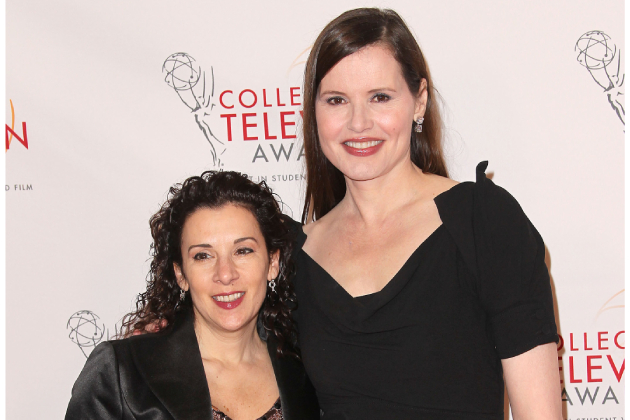NEW ORLEANS – The social and cultural impact of Lifetime’s Surviving R. Kelly was undeniable during a case study of the six-part docuseries at the 2019 Realscreen Summit yesterday (Jan. 30).
Surviving R. Kelly explores decades of allegations of abuse by musician R. Kelly, including holding women, many speaking publicly for the first time, against their will in what’s been termed as a “sex cult.” The survivors are joined in the series by numerous members of Kelly’s inner circle, with interviewees including civil rights activist and #MeToo founder Tarana Burke, musicians John Legend and Sparkle, talk-show host and former DJ Wendy Williams, ex-wife Andrea Kelly, brothers Carey and Bruce Kelly, and others.
R. Kelly’s lawyer has denied the allegations made in Surviving R. Kelly.
Before Surviving R. Kelly premiered, a preview screening event was disrupted by gun threats. Then Kelly’s lawyer threatened a lawsuit should the premiere air as planned. The premiere went ahead on Jan. 3 as scheduled.
The program ranked as cable television’s number one non-fiction series in key demos for the week it aired, and as Lifetime’s strongest non-fiction series in seven years, with 18.8 million viewers across all linear telecasts.
Its impact could be felt almost immediately. Kelly launched a website called survivinglies.com, with the intent to discredit his accusers. Facebook took down the accompanying page on its website for violating its terms of use.
And although the allegations have been covered extensively in print and digital media, particularly by Chicago-based journalist Jim DeRogatis, it seemed to take a television series and resulting public outcry to prompt certain factions into action. On Jan. 8, less than a week after the premiere, Chicago Cook County State Attorney Kim Foxx held a press conference asking possible victims of sexual assault or domestic violence by Kelly to contact her office to allow an investigation into the matter.
Subsequently, musicians including Lady Gaga, Chance the Rapper and Céline Dion had their past collaborations with Kelly removed from streaming sites, iTunes, YouTube and other platforms in response to the allegations against him, and many made public apologies for those collaborations. Sony Music, the global music conglomerate that houses Kelly’s longtime label, RCA Records, has reportedly dropped him as an artist, after a long period of public pressure.
Kelly’s ex girlfriend (and one of participants in the series) Kitti Jones (pictured, right), who was profiled by Rolling Stone over a year before the Surviving premiere, was present on the panel, along with Lifetime EP Brie Miranda Bryant, Kreativ Inc. EPs Jesse Daniels and Tamra Simmons (left), and Lifetime SVP of publicity and public affairs Kannie Yu LaPack.
The panel was moderated by media consultant and the founder of M.A.P. Media & Consulting Noah Pollack.
Immediately it became clear that the series wasn’t just meant to chronicle historical crimes, but to make a difference and, according to the panelists, to prevent any future abuses.
“I wanted to make sure people knew it was still happening, although my story was from 2011 through 2013, there were still people being victimized, and there were still people in the house,” said Jones. “I wanted to keep speaking out.”
The series’ ratings speak for themselves, though LaPack adds that sexual assault lines saw a huge uptick in calls following the broadcast, suggesting the message spoke to other survivors of domestic and sexual violence.
The success of Surviving also demonstrated the desire for more coverage of black women’s stories of surviving abuse – stories that weren’t often being highlighted as the #MeToo and Time’s Up movements began to gain momentum.
“I think it was very different from [the] Harvey Weinstein and Larry Nassar [stories], because these women were not actresses, they weren’t Olympic gymnasts. They were regular people, and for those reasons, they were relatable, because, but for the grace of God, it could be any of us,” Bryant told the attendees. “That’s how it felt.”
Jones certainly walked away with immense strength. “I have a lot of people looking at me as a hero, and I never heard those words,” she said. “I never thought that people would view me in that way. Leaving the situation, that was one of my biggest fears. I’d always been that strong person for my friends. You’re filling everyone’s cups, and no one’s filling yours. Part of that was, okay, I’m that person again.”
Surviving R. Kelly is not the first exposé of power and abuse, nor will it be the last. But what the panel demonstrated was that the show has sparked a much-needed conversation within the broader landscape and importantly for the industry, strong audience interest for this kind of content.





























